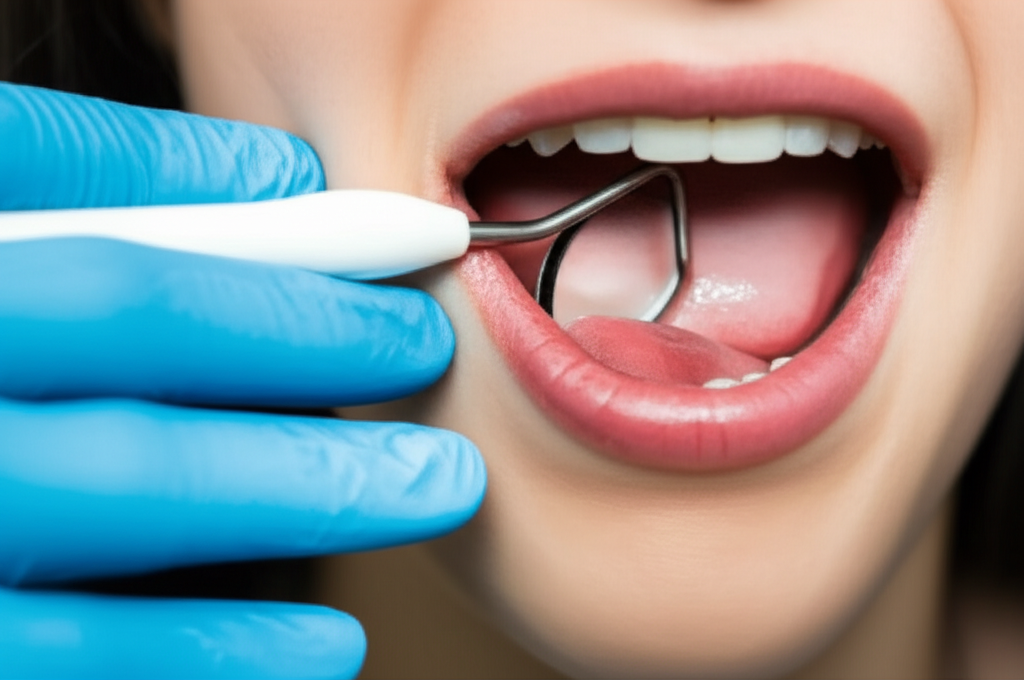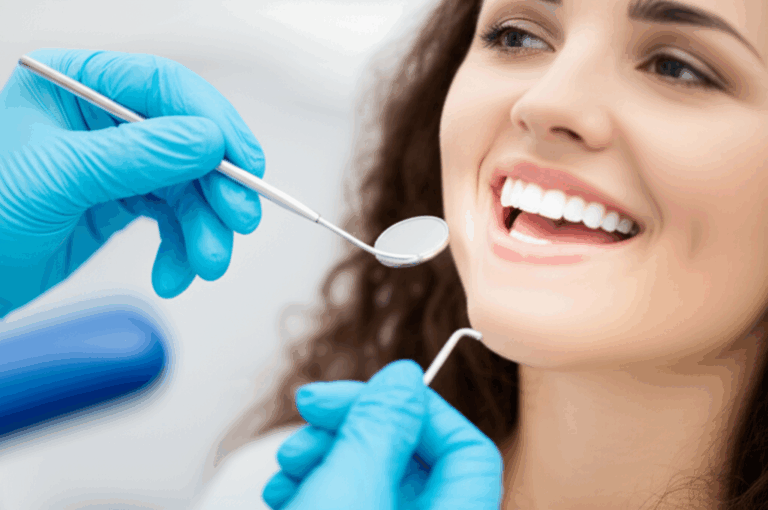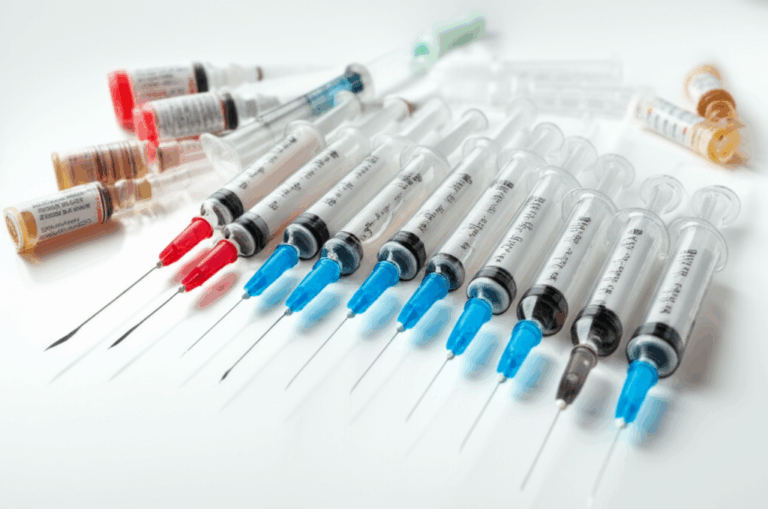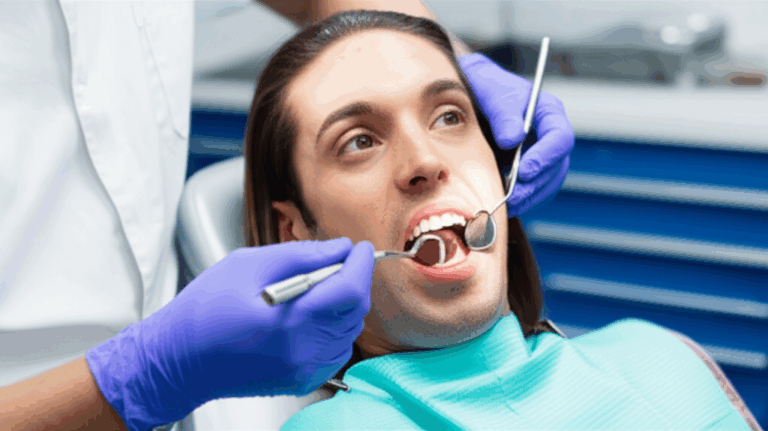
Can a Dentist Clean Your Tongue? Understanding Professional vs. Home Oral Hygiene
That lingering question about tongue cleaning might seem small, but let’s be honest—when you catch a glimpse of a white coating on your tongue or can’t quite kick stubborn bad breath, it’s impossible to ignore. You’ve nailed your brushing and flossing routine, but something still feels off. So, here’s what you’re wondering: Can a dentist clean your tongue, and is that the missing piece in your oral health routine?
First, relax—this is a common worry, and you’re in the right place. Let’s break it down together. I’ll explain everything you need to know about dentist tongue cleaning, at-home care, and how to keep your mouth feeling clean and healthy. No judgment here, just real talk and simple tips you can actually use.
In This Article
What We’ll Cover:
- Quick Answer: Do Dentists Clean Your Tongue?
- What Happens During a Standard Dental Cleaning?
- Why Might a Dentist Clean Your Tongue?
- Why Routine Professional Tongue Cleaning Isn’t Standard
- The Importance of Daily Tongue Cleaning at Home
- When to Talk to Your Dentist About Your Tongue
- Frequently Asked Questions
- Your Healthy Takeaway: Steps Toward a Clean, Healthy Tongue
Quick Answer: Do Dentists Clean Your Tongue?
Here’s what you want to know: Most dentists don’t clean your tongue as a usual, separate part of a regular dental cleaning.
Surprised? You’re not the only one. A lot of people think “professional cleaning” means every part of the mouth, tongue included. Actually, dentists and dental hygienists mostly look after your teeth and gums. Your tongue gets a quick check—especially if it looks odd—but a thorough cleaning is pretty rare, unless you have a certain problem or ask about it.
Is this okay? Yes. Most of the real work for tongue health happens at home, in your own bathroom, with easy tools and good habits.
But let’s go deeper. Here’s why this happens, what actually happens at your dental visit, and how you can keep your tongue (and breath) feeling fresh every day.
What Happens During a Standard Dental Cleaning?
Picture this: you’re in the dentist’s chair, mouth open, bib on. What’s really going on?
The Main Event: Teeth and Gums
- Plaque and Tartar Removal: Most of the cleaning is all about your teeth. Dental hygienists use special tools—to scrape away tough, stuck-on stuff (tartar) that brushing leaves behind.
- Gum Health Check: They look at your gums for any swelling or signs of gum disease.
The Dental Hygienist’s Job
These workers are pros at keeping your mouth healthy. They clean, polish, give you cleaning tips, and look for problems—including looking at your tongue.
Quick Tongue Check
Is your tongue skipped? No.
Here’s the usual:
- Visual Check: Dentists or hygienists look for anything strange—lumps, colors, patches, or sores.
- Checking for Serious Problems: They’re making sure you don’t have something like a yeast infection, mouth sores, or even signs of oral cancer.
But unless you mention something’s wrong, dentists usually don’t scrub your tongue during regular cleanings. You’ll probably hear: “Don’t forget to clean your tongue at home too!” That’s the truth.
Why Might a Dentist Clean Your Tongue?
Okay, so they don’t usually clean your tongue unless there’s a reason. When do dentists help out?
1. If You Have a Tongue Problem
You come in saying you have white patches, pain, burning, or your tongue looks funny (like “geographic tongue,” with odd red shapes), your dentist switches gears.
- Oral Thrush (Yeast Infection): This looks like white patches that can be wiped off. Your dentist might carefully wipe off some coating to check and treat it.
- Black Hairy Tongue: Yes, that’s the real name. It’s not hair, it’s just the little bumps sticking up and trapping gunk. If it’s really bad, the dentist might help clean it off and show you how to keep it from coming back.
- Worried Spots or Sores: Any odd lump or sore gets a really close look to make sure it’s nothing serious.
2. Unstoppable Bad Breath (Halitosis)
Brushing, flossing, mouthwash—still have bad breath? Your tongue might be the cause. Often, it is.
- The Science: Most bad breath starts in the mouth, and the back of your tongue is where the smelly germs hang out.
- What Your Dentist Does:
- Asks about your diet, meds, and health.
- Checks your gums and teeth.
- Looks at and sometimes gently wipes your tongue, especially if it looks coated.
- Suggests daily tongue cleaning or sends you to a specialist if it’s serious.
3. Full Mouth Cancer Check
Every proper dental exam looks at your tongue. Dentists check for:
- Strange colors (white, red, or dark patches)
- Sores that don’t heal
- Lumps, bumps, or thick spots
It’s not cleaning really, but it’s important for finding mouth cancer early. If they see something odd, your dentist might send you for more tests.
4. Special Medical Situations
Some people get extra help:
- Babies, older folks, or people with weak immune systems who get thrush
- People with dentures
- People who can’t clean themself well
Why Routine Professional Tongue Cleaning Isn’t Standard
Maybe you’ve thought, “Why doesn’t my dentist just clean my tongue every time?” Here’s the easy answer—it’s all about what works best.
Home Care Works Best
- Tongue scrapers and brushes really work—studies show they get rid of up to 75% of the germs that cause bad breath.
- Doing it every day is what counts—think about washing your face. If you wash every day at home, you don’t really need someone else to deep clean it for you!
Dentists Focus On Biggest Problems
Most mouth problems—like cavities and gum problems—start on teeth and gums, not your tongue. That’s why dental cleanings, even in a high-tech digital dental lab, focus on teeth and gums first.
The Tools Matter
Dental tools aren’t made to clean tongues well:
- Tooth scrapers and tooth polishers can be rough or hurt your tongue.
- Tongue scrapers and brushes are made just for this and are safer and more comfy.
Sometimes Special Tools Are Needed
Are there times dentists use special tools or lasers? Sure, but that’s only for rare, serious problems like black hairy tongue or tough yeast infections, not for regular cleaning.
The Importance of Daily Tongue Cleaning at Home
Don’t forget—what you do at home matters most. You’re in charge of your mouth, and a clean tongue can make a big difference.
Stopping Bad Breath: The Secret Weapon
Those smelly sulfur gases that cause most bad breath come from germs on your tongue.
How do you stop them? Clean your tongue every morning—scrape or scrub!
Taste Your Food More
A dirty tongue doesn’t just look or smell bad. It can actually make food taste bland.
Cleaning off gunk helps you enjoy meals more.
Helps Teeth and Gums
- Germs on your tongue can move to your teeth and gums, making cavities or gum troubles more likely.
- A clean tongue helps keep your whole mouth healthier and your smile brighter.
How to Clean Your Tongue: The Simple Way
- Tongue Scraper: Works well and is gentle.
- Tongue Brush: Some toothbrushes have a rough back for tongue cleaning.
- Stick out your tongue.
- Put the scraper or brush as far back as you can, then pull forward gently.
- Rinse after each swipe.
- Repeat a couple of times—but don’t scrub too hard!
- Once in the morning (and at night for extra freshness).
- Brush your teeth and gums.
- Floss to get hidden dirt.
- Rinse with mouthwash—zinc ones help with breath.
Tip: Some people use tongue probiotics or avoid foods and habits (like smoking) that make the tongue dirty.
When to Talk to Your Dentist About Your Tongue
Don’t wait if your tongue looks or feels weird. See your dentist if:
- Bad Breath Won’t Go Away: Even after better home cleaning.
- White or Red Patches, or Odd Colors: Could mean an infection or sometimes something more serious.
- Pain, Burning, or Soreness: Could be a yeast infection, vitamin problem, or something else.
- Swollen or Hard to Move: Could be injury, allergy, or infection.
- Changes That Won’t Go Away After 2 Weeks: That’s the “see your dentist” rule.
If anything on your tongue just seems strange, ask your dentist—they’re trained to check this stuff.
Frequently Asked Questions
Do Dentists Always Check the Tongue?
Yes. Every dental check includes looking at your tongue—checking color, shape, and how it moves. This helps spot germs, vitamin problems, or signs of disease.
Is There a Professional Tongue Cleaning?
Usually, no. There’s no standard “tongue cleaning” when you get your teeth cleaned. If you have a problem like yeast or black hairy tongue, your dentist may help clean your tongue or give you medicine.
Can I Ask for Tongue Cleaning?
You can always ask! Some dental offices will use a tongue scraper if you want, but most will show you how to do it at home, and may suggest the right tools for you.
What About Children or Special Needs?
Kid dentists watch children’s tongues extra closely, especially after sickness, antibiotics, or bottle feeding. People with disabilities or seniors with dentures sometimes get extra help too.
Isn’t Mouthwash Enough for the Tongue?
Mouthwash is good, but it can’t do everything. Some germs form a sticky layer (like a shield) that only scraping or scrubbing can really remove. Use both for the best mouth!
Helping You Spot an Unhealthy Tongue
- White or yellow gunk that won’t brush away: Might be a yeast infection or dry mouth.
- Redness or swelling: Could be irritated, allergies, or low in vitamins.
- Painful cracks or grooves: Might be genetic, or could mean dry mouth, vitamin issues, or infections.
- Black or “hairy” looking tongue: Often from smoking, medicines, or not cleaning enough.
- Dry or sticky feeling: Can come from certain meds or dry mouth.
Notice something odd? Don’t panic—see your dentist. They’re like mouth detectives!
Your Options: Dentist or Home Tongue Care
Here are your choices:
At-Home Tongue Cleaning
Pros:
- Cheap and easy.
- Very effective (especially with a scraper).
- Lets you control your breath and health.
Cons:
- Needs daily effort.
- Some people gag easily (tip: go slow, and don’t start too far back).
When You Need The Dentist
- Thick or odd-colored coating: Especially greenish/black or not going away at home.
- Ongoing bad breath: If scraping, brushing, and mouthwash don’t help, see a pro.
- Pain, bumps, or weird spots: These may need a dentist to check or treat.
Special Professional Help
- Prescription rinses or yeast medicine for infection.
- Deep cleaning for hard build-up (not common, and only in some offices).
- Tests or referrals for strange sores/bumps.
- Hygiene lessons: Sometimes the best help is teaching you (or your child/caregiver) to clean the tongue right at home.
Who Needs Extra Help?
Not everyone needs more than just good home care, but some people need a bit more:
You might need extra help if you:
- Wear dentures or retainers (they can trap food and germs!)
- Have dry mouth from meds or illness
- Have a weak immune system
- Have trouble cleaning your own mouth
- Get a lot of tongue sores, deep cracks, or heavy coating
If your dentist works with china dental lab or a dental ceramics lab, they can sometimes make special mouth appliances, night guards, or dentures that are easier on your tongue and simpler to clean.
The Science Behind Tongue Cleaning: What Studies Say
- Bad breath is common, up to half of all people have it sometimes. Most starts in the mouth, and the tongue is the main spot.
- Scrapers get rid of about 75%+ of bad breath stuff, while just brushing the tongue takes off maybe 45%.
- Cleaning your tongue helps you taste better, so your meals are more enjoyable.
- Dentists help figure out why you’ve got bad breath or tongue problems, but most of the time, they’ll send you back to better home care.
Main point: Most of the time, dental cleaning is for your teeth and gums. You’re in charge of your tongue—every day.
Common Tongue-Care Mistakes (How to Fix Them)
- Just using your toothbrush: It might miss stuff. Scrapers are a small spend for a big change.
- Not reaching far enough back: Smelly germs live at the back. Try to clean as far as feels comfy.
- Scraping or brushing too hard: Be gentle—no need to hurt yourself!
- Not rinsing the tool: Clean it after each swipe to avoid moving germs around.
- Forgetting to do it daily: Make it part of your routine!
Your Healthy Takeaway: Steps To a Clean, Healthy Tongue
Here’s your mini-guide:
Main Tips:
- Dentists don’t usually deep clean your tongue, unless you need it for a problem.
- Dentists check your tongue every visit to catch problems early.
- You need to clean your tongue daily—with a good scraper or brush.
- If breath or coating won’t go away, see your dentist.
- If your tongue is sore, changes color, swells, or has bumps, call for help if it lasts more than 2 weeks.
Easy Steps:
Remember:
A healthy mouth isn’t just about straight, white teeth. Your tongue is super important too. With a little daily effort, you’ll get fresher breath, happier gums, better taste, and real peace of mind.
For more advanced dental help or mouth pieces that help with cleaning and comfort, look for good providers—whether you need a special denture lab, digital mouth planning, or comfort-focused cosmetic options.
Still worried or dealing with ongoing trouble? Don’t wait—book a visit with a trusted dentist and let the pros help you toward a fresher, healthier smile.
Better habits. More confidence. A cleaner tongue. Your next fresh breath could start today.








